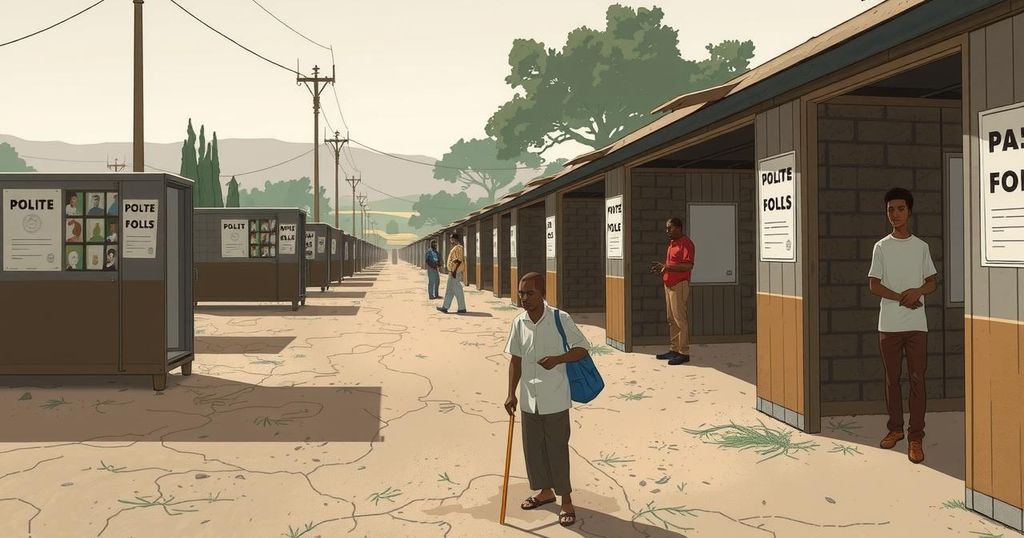Ghana’s Elections: A Critical Test Amidst Economic Turmoil
Ghanaians will vote in a general election on Saturday amidst the worst economic crisis in decades, characterized by high inflation and unemployment. The election features a two-horse race between Vice President Mahamudu Bawumia and former President John Mahama. Concerns about economic stability and illegal gold mining overshadow the campaign, as both candidates seek to address pressing national issues.
Ghanaians are set to vote on Saturday in a general election marked by the nation’s worst economic crisis in decades. Approximately 18.7 million citizens are registered to participate in presidential and legislative elections. The two leading candidates, Vice President Mahamudu Bawumia of the New Patriotic Party (NPP) and former President John Mahama of the National Democratic Congress (NDC), present limited prospects for change in a country facing soaring inflation and unemployment.
Historically a stable democracy in West Africa, Ghana has recently witnessed a decline in public sentiment, with 82% of citizens believing the country is headed in the wrong direction, as indicated by a survey from Afrobarometer. While 12 candidates vie for the presidency, the contest primarily hinges on Bawumia and Mahama due to their established political backgrounds within Ghana’s multiparty system.
The upcoming elections will also include the selection of 276 members of parliament, with the NPP and NDC currently each holding 137 seats in the 275-member legislature. The campaign finale saw both candidates emphasizing their visions for addressing the economic crisis, with Bawumia pledging continuity and stability, while Mahama called for a comprehensive “reset” across various sectors of governance and the economy.
In Accra, the pre-election atmosphere has been characterized by energetic rallies and public displays of support, although concerns surrounding the economic challenges remain evident. The country’s economic troubles, including a recent debt default and a high inflation rate of 54%, continue to weigh heavily on voters. Additionally, the issue of illegal gold mining, or “galamsey,” has heightened public anxiety, prompting protests against the government due to environmental degradation and the search for employment in a struggling economy.
The impending Ghanaian elections represent a crucial moment for the nation, juxtaposed against a backdrop of severe economic challenges. As citizens prepare to vote, they face a choice between two candidates who, despite their distinct party affiliations, offer limited divergence in their policies. Ultimately, the outcomes of these elections will be pivotal not only for the immediate future of Ghana’s economy but also for the broader integrity of democracy in the region.
Original Source: apnews.com




Post Comment